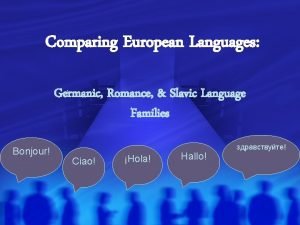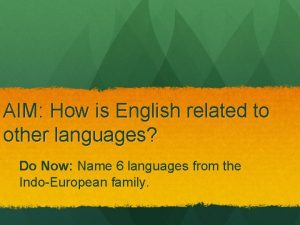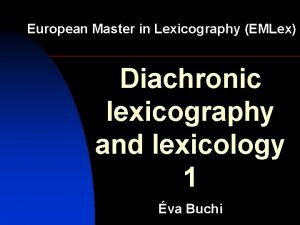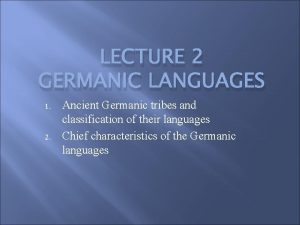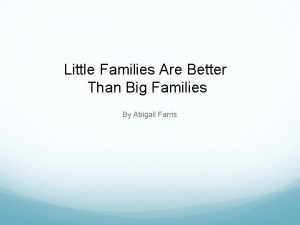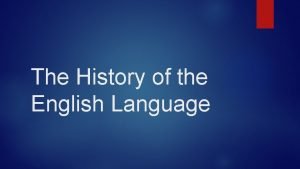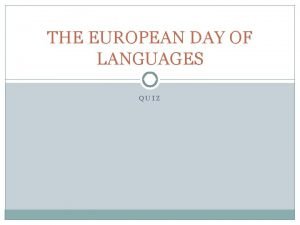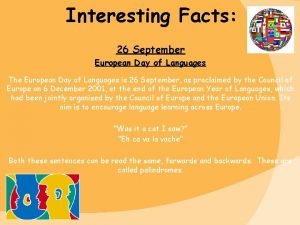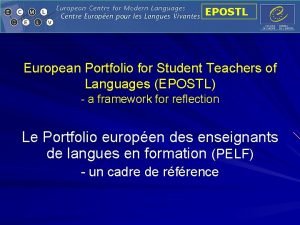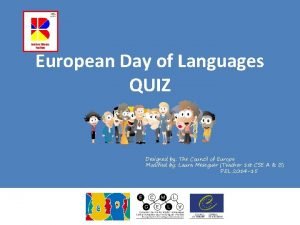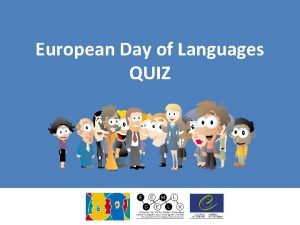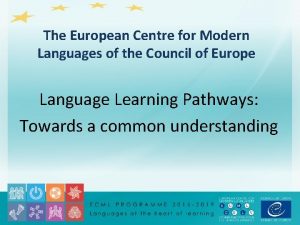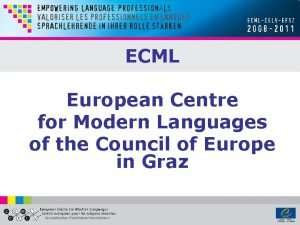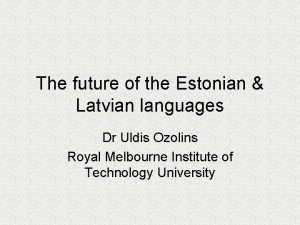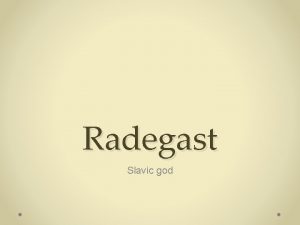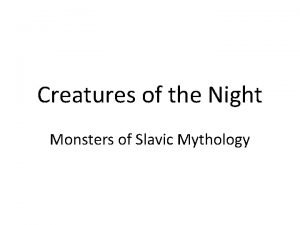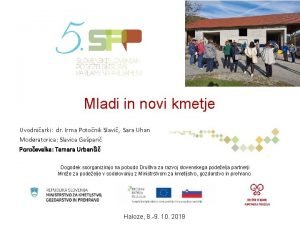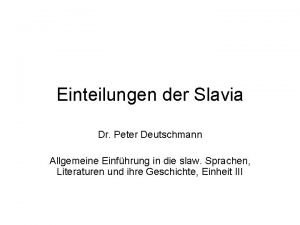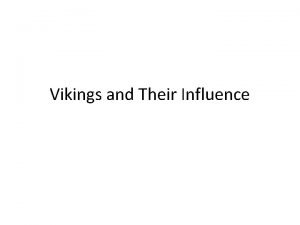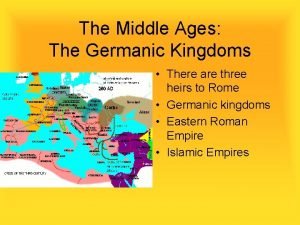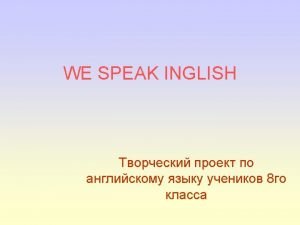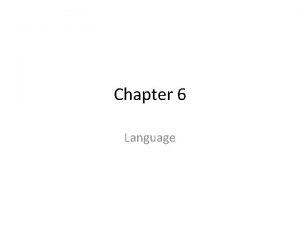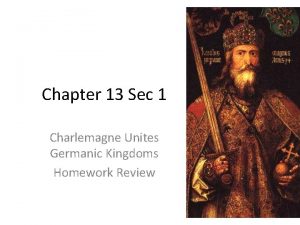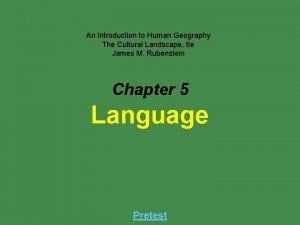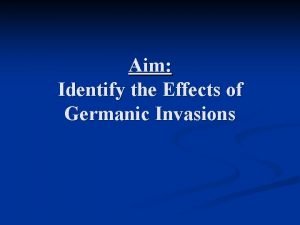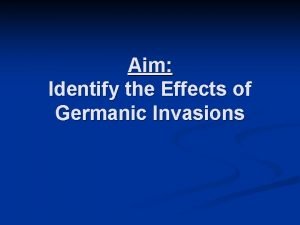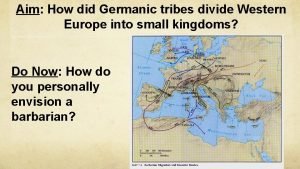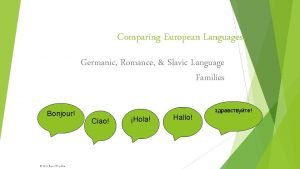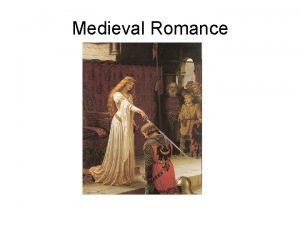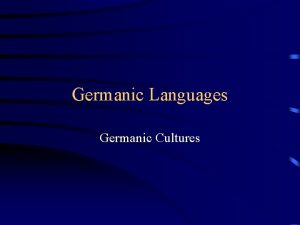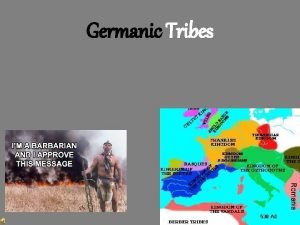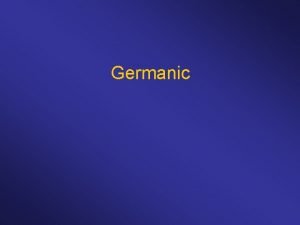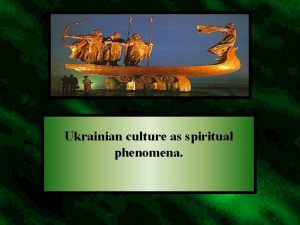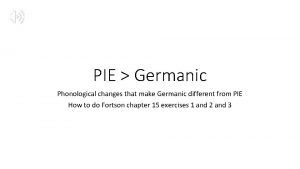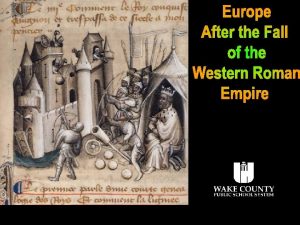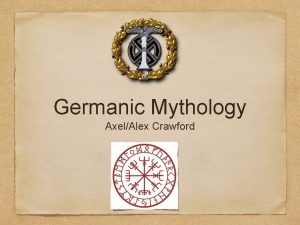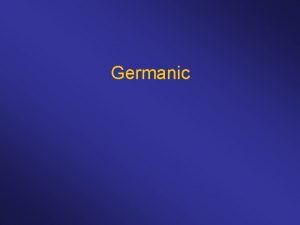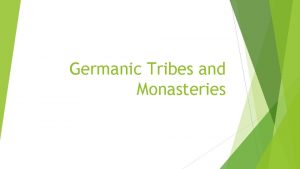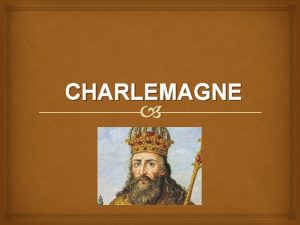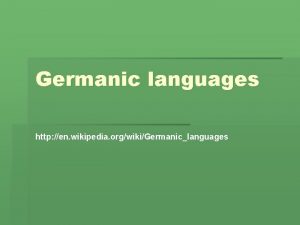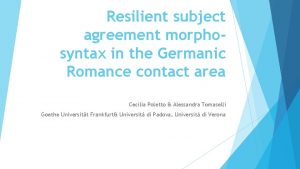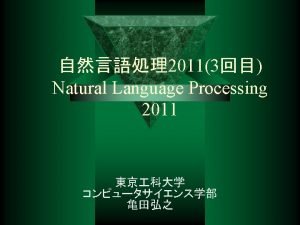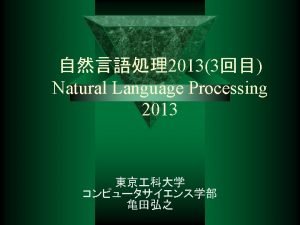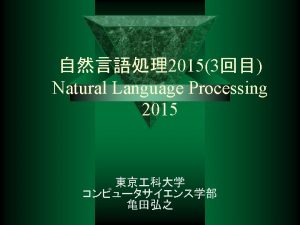Comparing European Languages Germanic Romance Slavic Language Families

































- Slides: 33

Comparing European Languages: Germanic, Romance, & Slavic Language Families Bonjour! © 2014 Brain Wrinkles Ciao! ¡Hola! Hallo! здравствуйте!

T e a c h e r Info –Languages Gallery Walk • Print o f f the following 6 slides and post them around the room. (The students will need to travel to each poster, read it, and write down what they think the language is. ) © 2014 Brain Wrinkles

Hallo! Ich bin froh dass Sie in meiner Gemeinschaftskund e-Klasse sind. Auf Wiedersehen! © 2014 Brain Wrinkles

Olá! Estou contente de que você esteja na minha classe de Estudos Social. Adeus! © 2014 Brain Wrinkles

¡Hola! Me alegro de que usted esté en mi clase de Estudios Social. ¡Hasta la vista! © 2014 Brain Wrinkles


Bonjour! Je suis heureux que vous soyez dans ma classe de Sciences humaines. Au revoir! © 2014 Brain Wrinkles

Ciao! Sono contento che tu sia nella mia classe Studi Sociali. Arrivederci! © 2014 Brain Wrinkles

T e a c h e r Info –Languages Gallery Walk • Print o f f the following slide and give each student a copy. • The students will f i r s t travel around the room and read the language poster, guessing the language of the poster. • A t the end of the discussion, the students will classify the posters by language family. © 2014 Brain Wrinkles

© 2014 Brain Wrinkles

L a n g u a g e s Gallery Walk Let’s see if you guessed correctly! 1. German 2. Portuguese 3. Spanish 4. Russian 5. French 6. Italian © 2014 Brain Wrinkles

What Did They S a y ? Hello! I'm glad that you're in my Social Studies class. Goodbye! © 2014 Brain Wrinkles

• Buenos días Добр ое ут ро SS 6 G 11 a DIVERSITY OF EUROPEAN LANGUAGES ciao en t o n e g ro m при o • g N R U O J BO hallo вет h a l o

T e a c h e r Info –Languages Question Strip • Print o f f the following slide, cut out, and give each student a Question Strip. • The students should glue the strip into their notebooks and write the answers on the notebook lines beside each question. • All of the answers can be found in the presentation. © 2014 Brain Wrinkles

W ·art ·arve Erurnp eans 1 done to try t o solve prob I en ofi so manry lamguages? e W ·ic · arnguages come f rn m the lamguage of the 1 andernt Roman Eimpire? W ic -·European ang. LIi: llge hlas 'the larg est nrumber of rna. Uve speakers? 1 W ·at ·is a rn 1 , em cause by many la rnguages spok en in U 1 esame 1 COILIrntry? W at ave Erumpeans W ·at ave Eruropeans done to tiry to solve e problen of so m any a l 111 guages? [n e German anirl Engrnstti lamguages aluke? [ n w ·at wav ; a re, · e, German anirl Engrnsh lamguages a. Uke? W ic -·a nguages come ·ic -· ang ages come from thle lamgu 21 ge of the andernt Roman Empir e? done to ry to solve he problem of so many lamguage. s? I at J 1 ay a re from thl e la 111 guageof the 1 andernt Roman Empire? 1 a g. Liage hlas. e, larges nrumber of W ·ic · European ang. LIage rnative speakers? has the larg es nrumber of rnative s. ei: llk. ers? W at s a pro em cause W at is a pm , em G: iuse by by rna ny la rnguages. W ic · Europ. ea rn 1 any arnguages spoken in the s: a me co. ILirntry"? 1 sp. ok en in the same COILIrntry? 1

European L a n g u a g e s • Europe is home to more than 200 native languages! • Most European languages are in 3 main language families (or categories): • Germanic, • Romance, & • Slavic © 2014 Brain Wrinkles

Members of the Indo-European Language Family © 2014 Brain Wrinkles

Germanic Language Family • Has the most native (1 st ) speakers • Most live in northwest and central Europe • English & German are part of this family • About 20% of Europeans speak one of these two languages • Most Europeans learn English as a 2 nd language in their schools © 2014 Brain Wrinkles

Romance Language Family • Includes French, Italian, & Spanish, Portuguese • Most live in the south and west of Europe • These languages come from Latin, the language of the ancient Roman Empire • Romance Languages © 2014 Brain Wrinkles

Slavic L a n g u a g e s • Includes Russian • Found in central and eastern Europe • Written with a Cyrillic alphabet © 2014 Brain Wrinkles

Brain Break! • If possible, w r i t e your name using the Cyrillic alphabet. © 2014 Brain Wrinkles

SIGNS USING THE CYRILLIC ALPHABET

Diversity in European L a n g u a g e s Today • Many countries have more than one official language • Part of life in many countries in Europe due to the ethnic background of the people living there • Many countries share borders, and people move back and f o r t h across borders • About 400 million people in the world speak English because it is often the choice f o r a 2 nd language © 2014 Brain Wrinkles

© 2014 Brain Wrinkles

• Having so many languages can be a problem • Difficult to live, work, and trade with people who cannot communicate with each other • So… • Schoolchildren learn 1 or 2 other languages besides their own • European Union has 23 “official” languages to make sure that people can understand laws and decisions made by the government © 2014 Brain Wrinkles

1. How are the languages of French and Italian similar? A. The two countries are close to each other. B. Both languages are Romance Languages. C. They share roots of Germanic languages.

1. How are the languages of French and Italian similar? A. The two countries are close to each other. B. Both languages are Romance Languages. C. They share roots of Germanic languages.

2. Which major European language origin has the largest number of native speakers? A. Germanic B. Romance C. Slavic

2. Which major European language origin has the largest number of native speakers? A. Germanic B. Romance C. Slavic

3. What have Europeans done to solve the problems presented by so many different languages? A. They do not trade with people who do not speak the same language. B. Made laws that proclaim English is the only official language of the EU. C. Require students in school to learn at least two languages.

3. What have Europeans done to solve the problems presented by so many different languages? A. They do not trade with people who do not speak the same language. B. Made laws that proclaim English is the only official language of the EU. C. Require students in school to learn at least two languages.

4. Which language(s) come from the ancient Roman Empire? A. B. C. D. English and Dutch Russian and Polish Latin French, Italian, Spanish

4. Which language(s) come from the ancient Roman Empire? A. B. C. D. English and Dutch Russian and Polish Latin French, Italian, Spanish
 Language families
Language families Germanic romance slavic
Germanic romance slavic Balto slavic languages
Balto slavic languages Old slavic language
Old slavic language European master in lexicography
European master in lexicography Uga romance languages
Uga romance languages Ancient german language
Ancient german language Big families vs small families
Big families vs small families Characteristics of indo european languages
Characteristics of indo european languages European day of languages quiz
European day of languages quiz Facts about european language day
Facts about european language day European portfolio for student teachers of languages
European portfolio for student teachers of languages European day of languages quiz
European day of languages quiz European day of languages quiz
European day of languages quiz European center for modern languages
European center for modern languages European center for modern languages
European center for modern languages Is latvia slavic
Is latvia slavic Byzantine definition
Byzantine definition Slavic
Slavic Creatures of the night mythology
Creatures of the night mythology Irma potočnik slavič
Irma potočnik slavič Mazedonien sprache
Mazedonien sprache Are scandinavians germanic
Are scandinavians germanic Germanic kingdoms
Germanic kingdoms Language
Language Germanic branch
Germanic branch Charlemagne unites germanic kingdoms
Charlemagne unites germanic kingdoms Germanic
Germanic Germanic branch definition ap human geography
Germanic branch definition ap human geography Effects of germanic invasions
Effects of germanic invasions Effects of germanic invasions
Effects of germanic invasions How did germanic tribes divide western europe
How did germanic tribes divide western europe Continental law system
Continental law system Romance language in spanish
Romance language in spanish
